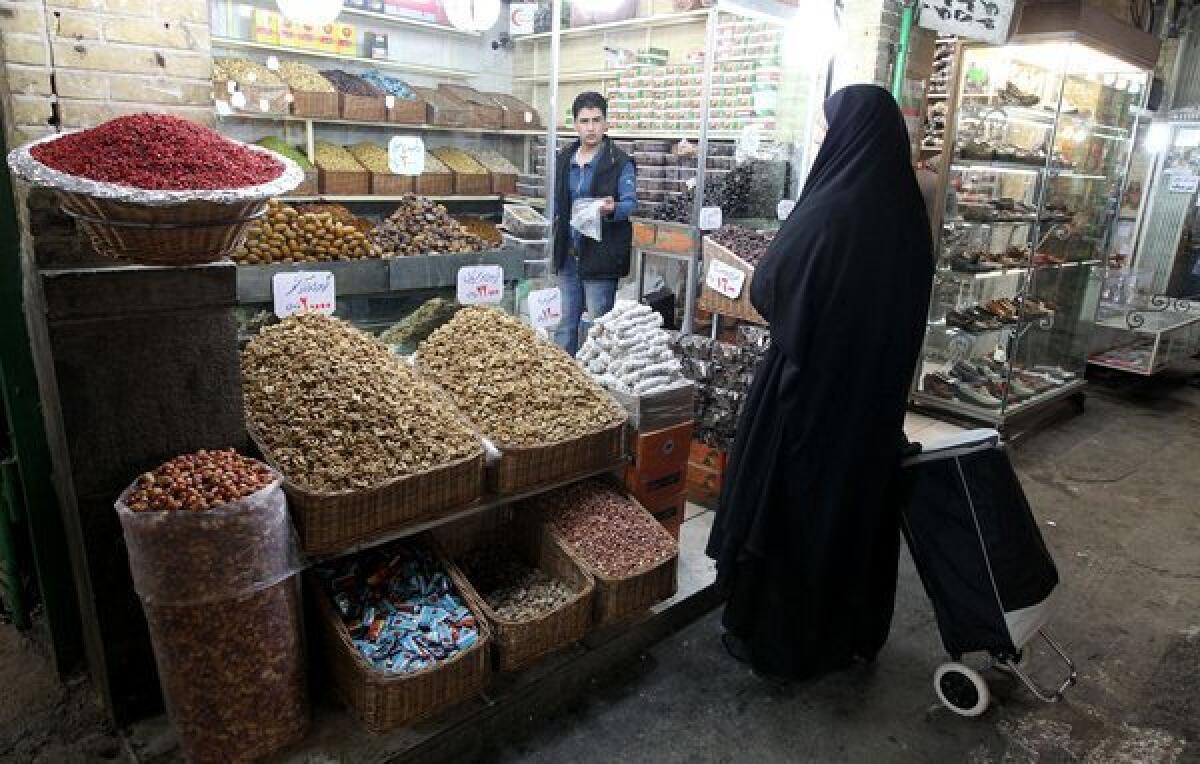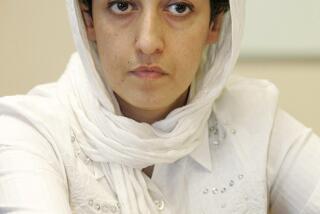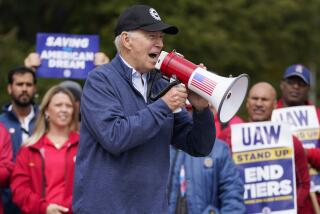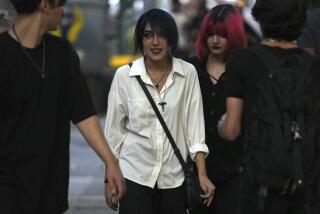Iran labor protest: Sign of daunting challenges for next president

TEHRAN -- More than 200 steelworkers staged a demonstration Tuesday in front of the Iranian parliament, protesting layoffs and unpaid salaries in an illustration of the daunting economic challenges facing President-elect Hassan Rouhani.
One of the laid-off workers told the semiofficial Iranian Labor News Agency that most were from the Zagros Steel Factory and had spent the night in a yard near the Tehran cemetery and on the grounds of the mausoleum of the late Ayatollah Ruholla Khomeini because they didn’t have the money to pay for hotel rooms.
The demonstrators had traveled from the far-flung city of Qorveh, in Iran’s Kurdistan province, and began their rally with a sit-in outside the presidential office Monday. By Tuesday afternoon two representatives from the group were negotiating with two lawmakers inside the parliament, the news agency reported.
Protests by unionized workers are common in the Islamic Republic, but the latest action comes in a charged environment. Rouhani, who takes office next month, has elevated expectations with his vows to boost Iran’s ailing economy, battered by international sanctions tied to Iran’s controversial nuclear program. He has also called on the government to respect unions and not meddle in their affairs.
For the incoming president, the steelworker dispute illustrates a looming challenge: how to satisfy frustrated citizens who are growing increasingly impatient about rising prices and high unemployment.
Rouhani has said he will work with lawmakers to ratify a new budget and also increase the minimum wage for low-income earners.
Iran’s unionized workforce is losing ground because salaries are not being adjusted for galloping inflation, Yousef Babadi Farhadi, a local reporter who covers the labor movement in Iran, told the Los Angeles Times. The nation’s economic slowdown has resulted in layoffs and delayed paychecks for some workers.
The ailing economy was a key point on Rouhani’s agenda when he addressed lawmakers in an open session of parliament Sunday. In his speech, Rouhani provided a grim overview.
“For the first time since the imposed war [Iran’s 1980s war with Iraq], our economic growth has been negative for two years in a row, and this is the first time that the negative growth is accompanied with high inflation -- the highest inflation in the region or perhaps in the world,” Rouhani said.
He put the inflation rate at 42%, higher than the Central Bank figure of 36%.
Rouhani went on to assail outgoing President Mahmoud Ahmadinejad for the dramatic decline in living conditions in recent years. To add to the worrisome picture, Rouhani said, more than 4 million university student graduates are currently without jobs.
A factor that some see as contributing to the crisis is the government’s decision to phase out generous state subsidies on fuel, food and energy. Poor Iranians have been reimbursed with monthly cash handouts, which represent a growing burden on public finances.
Professor Masoud Nili, who teaches economics at Tehran’s Sharif University, spoke about the prospect of more bad economic news in a recent interview with the Sharq reformist daily.
According to Nili, the prices of fuel and electricity, water and household gas could rise by up to 38% in the coming months to cover government cash subsidies for low-income Iranians.
“Social capital will be damaged,” Nili told Sharq.
ALSO:
Edward Snowden applies for temporary asylum in Russia
Solution for frazzled tourists in China: Baby bottles - for adults
Panama: North Korean ship stopped with missile parts from Cuba
Special correspondents Mostaghim reported from Tehran and Sandels from Beirut.
More to Read
Start your day right
Sign up for Essential California for news, features and recommendations from the L.A. Times and beyond in your inbox six days a week.
You may occasionally receive promotional content from the Los Angeles Times.





